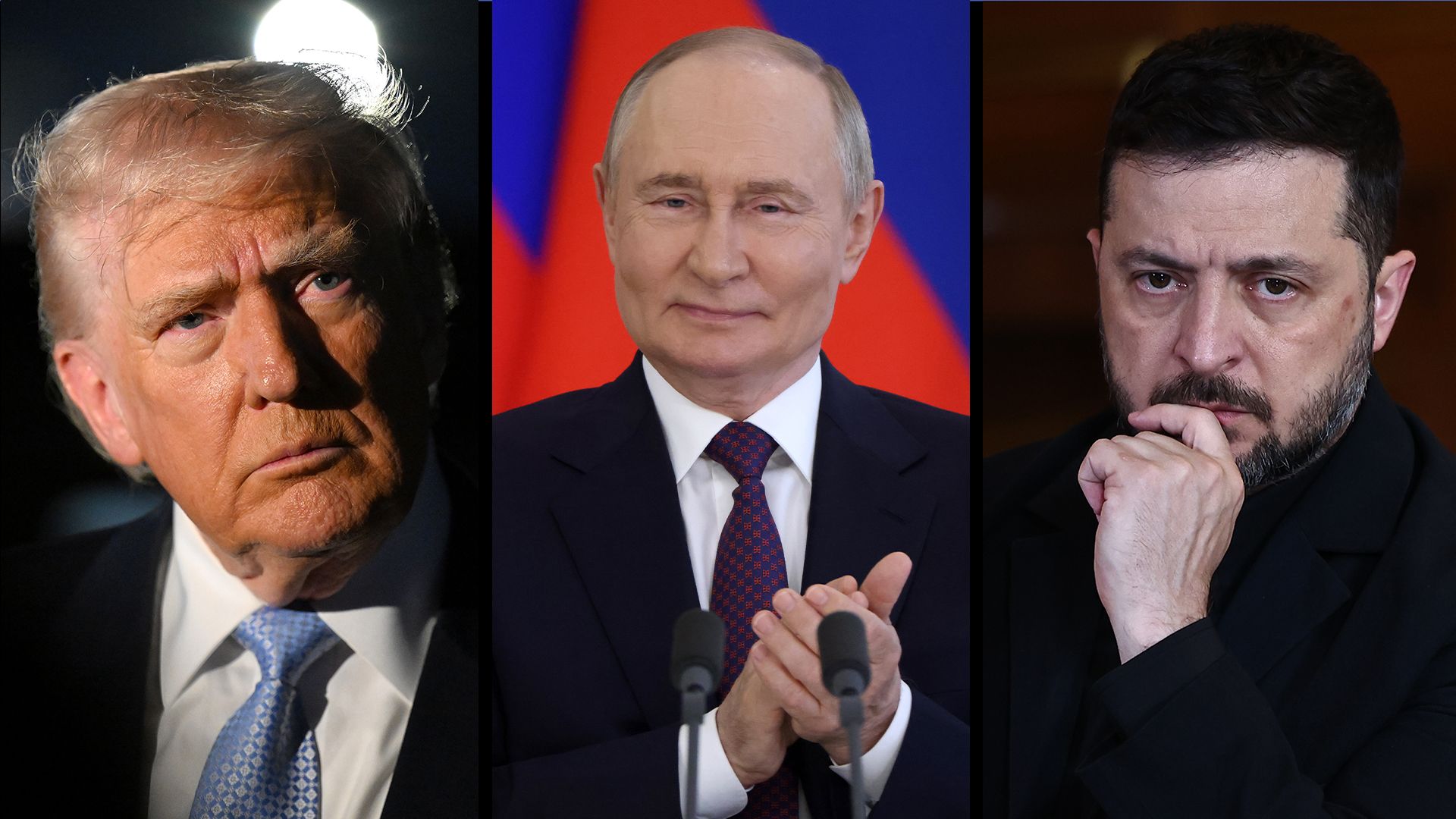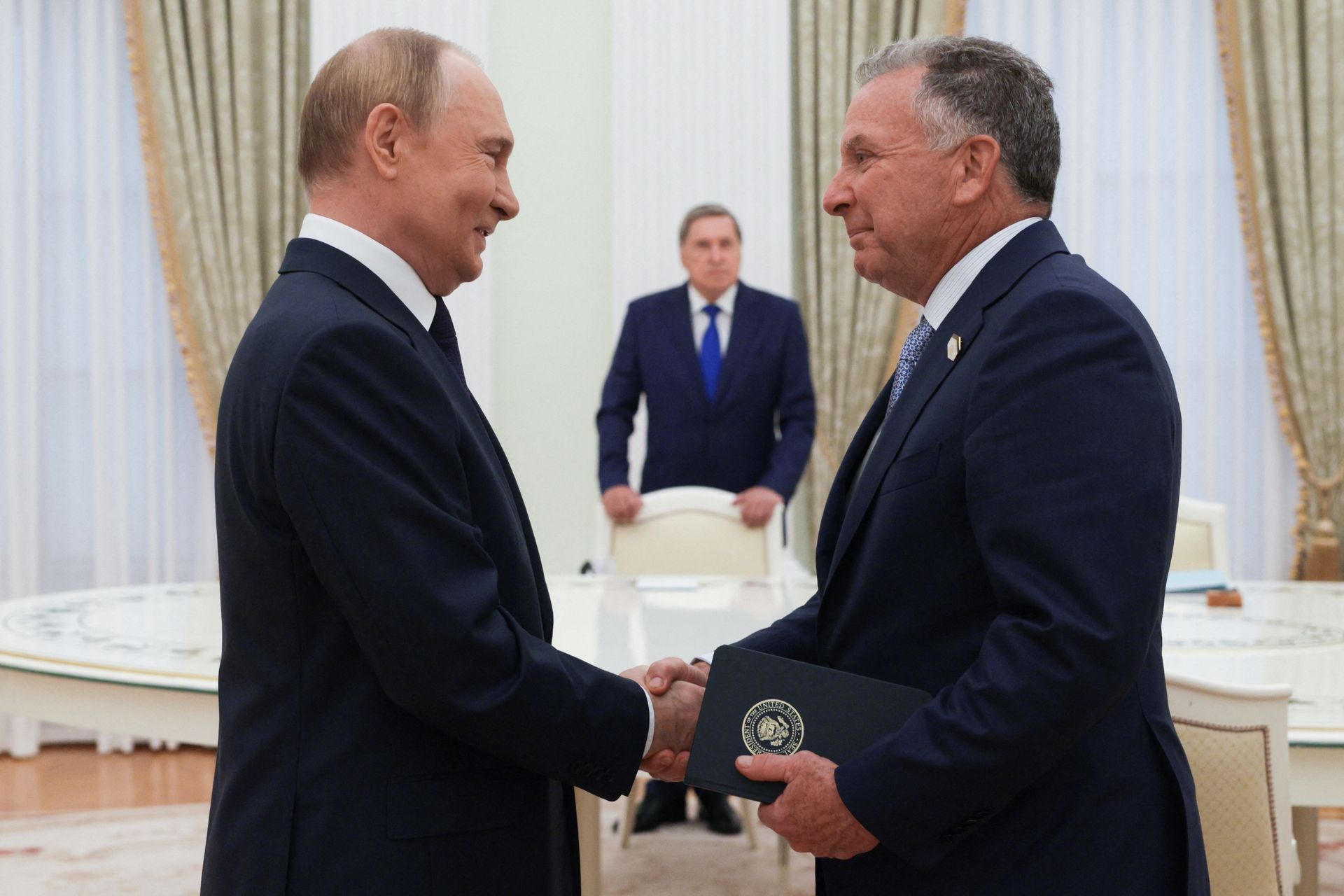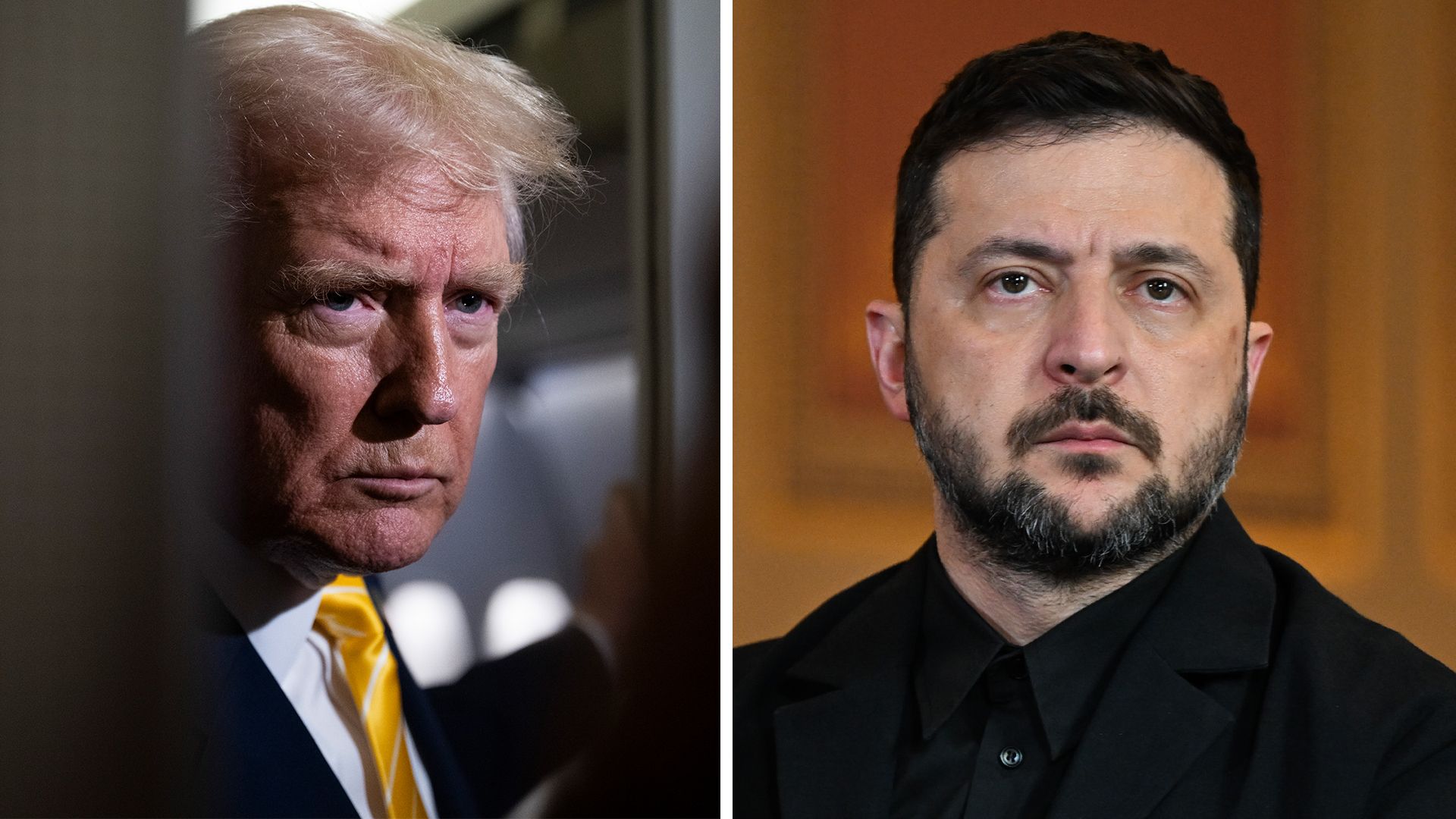'Echoes of 1938' — Trump's peace plan undermines Europe's security, experts warn

U.S. President Donald Trump's plan for ending Russia’s war has been criticized as effectively imposing the Kremlin's terms for Ukraine’s surrender.
But the plan also poses a direct threat to Europe's security architecture, analysts and diplomats believe.
The proposal requires Ukraine to cede territory, limit its alliances, and sharply reduce its military — conditions far more sweeping than any proposal discussed in previous negotiation rounds.
The plan is a major blow to the principles on which Europe's security is based — such as the rule of law, sovereign states' right to enter alliances and the ban on changing borders by force.
"When speaking about the original version of the plan, it is something that clearly undermines European security — not only the security of Ukraine but also of the whole continent," Pavel Havlicek, research fellow at the Association for International Affairs, told the Kyiv Independent.
If Kyiv is pushed to accept the proposal unchanged, "the consequences (for Europe) will be disastrous," Ukrainian lawmaker Yaroslav Yurchyshyn told the Kyiv Independent.
Dismantling Europe's security architecture
At the core of the framework — drafted by U.S. Special Envoy Steve Witkoff together with Kirill Dmitriev, Russia's top economic negotiator — is a sweeping territorial concession that would set a dangerous precedent.
Ukraine would surrender the entire Donbas region in the country's east — both Russian-occupied areas and the parts still controlled by Ukrainian troops.
Under the plan, Ukrainian forces would withdraw from these remaining areas, which would then be designated a demilitarized zone.
"For the region, for the whole world, this will demonstrate that international law can be disregarded."

"For the region and for the whole world, this will demonstrate that international law can be disregarded," Yurchyshyn said. "As a result, long-standing or frozen conflicts may be reignited in various parts of the world."
Another central provision envisages U.S. recognition of Russia's control over Ukraine's Crimea peninsula and Luhansk and Donetsk oblasts.
Daniel Hamilton, a foreign policy expert at the Brookings Institution, said the clause "would mean Western capitulation on basic principles such as not changing borders by force."
"It was a non-starter from the beginning," he added.
The proposals also call for NATO enlargement to pause and for Ukraine to shelve its NATO aspirations. Moscow has long claimed — falsely— that NATO expansion forced it into war.
Havlicek said the clause undermines the core logic of European security, which is built on the principle that sovereign states are free to choose their alliances. Undercutting that principle, he added, also weakens the argument that NATO enlargement makes Europe more secure.
Another stipulation would cap Ukraine's Armed Forces at 600,000 troops.
Ukrainian lawmaker Volodymyr Ariev warned that the limit would "only prepare conditions for a new war," adding that it would make it "easier for Russia to cause problems then."

Restrictions would also extend to NATO itself. Under the draft, the alliance would pledge not to station troops inside Ukraine, while European fighter jets would be based in Poland.
"There were direct references to military presence in Poland," Havlicek said. "If you are stating and imposing limits on Ukraine's military readiness but also EU and NATO neighbors, including implications for Poland's defense, then that already goes too far."
Estonian Foreign Minister Margus Tsahkna told the Kyiv Independent that the plan would "open the door" to Russia's broader demands on European security.
He specifically highlighted points two and four of the plan, which call for a comprehensive non-aggression agreement between Russia, Ukraine, and Europe, and a U.S.-mediated dialogue between Russia and NATO.
"The text should stay strictly focused on ending the war, securing Ukraine's future, and supporting Ukraine's reconstruction," he added.
Hamilton said the 28-point framework "was a jumble of incomplete statements," all pointing to a single outcome: weakening Ukraine and reshaping Europe's defense arrangements around Russian preferences.
Deciding on Europe's future without Europe
Beyond the concessions themselves, there are concerns about how the proposal was created: without Ukraine or Europe at the table.
Multiple sources told the Kyiv Independent that neither Kyiv nor European allies participated in drafting the plan.
"For many in the Czech Republic, this clearly echoed the Munich Agreement of 1938 — something negotiated about us, but without us," Havlicek said.
Estonian Foreign Minister Margus Tsahkna made the same point in sharper terms.
He told the Kyiv Independent that decisions affecting Europe's security cannot be made over Europe's head, stressing that "matters concerning the EU and NATO must be discussed and decided within the EU and NATO."
He added that the principle of "nothing about Europe without Europe" should not be changed.
A European counter-proposal
In an effort to counter Russia's demands, major European powers have drafted an alternative plan. The Kremlin has already dismissed it as unconstructive.
A version of the European plan obtained by Reuters softened some of the harshest demands on Kyiv, including raising the limits on the Ukrainian military from 600,000 to 800,000 troops and dropping the demand for Ukraine to cede additional territory in the Donbas.
The European plan also called for a ceasefire along the current front lines and sought U.S. security guarantees for Ukraine similar to NATO's Article 5.
Ukraine and the U.S. continue to negotiate the proposed framework.
U.S. Secretary of State Marco Rubio and Ukrainian President Volodymyr Zelensky's chief of staff Andriy Yermak met in Geneva on Nov. 23 to discuss revisions.
While Trump initially said Ukraine must approve the plan by Nov. 27, Rubio later indicated the deadline could shift and that the document remains subject to further edits.
"The Europeans seem to have had some influence in the subsequent drafting," Hamilton said.

"In short, there is no Thanksgiving deadline for Ukraine. The negotiations will continue, now with Europeans involved, and with Ukrainians ensuring their interests are being addressed."
Estonia's Tsahkna said Tallinn sees no evidence that Moscow has changed its goals. The Kremlin, he said, still aims to seize full control of Ukraine and reshape Europe's security order to its advantage.
To alter Russia's "imperialist goals," Europe must intensify pressure on the Kremlin while maintaining steadfast support for Ukraine, creating the conditions to compel Russian President Vladimir Putin to abandon his expansionist ambitions, he said.

















